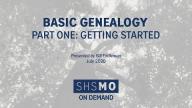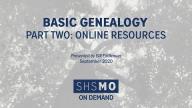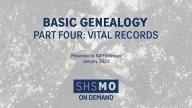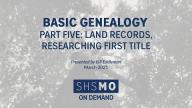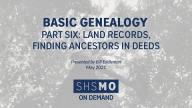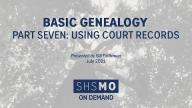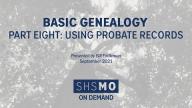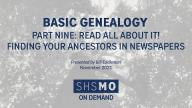SHSMO's Bill Eddleman presents a multi-part series on genealogy techniques and strategies. Now available free and on demand.
Bill Eddleman teaches us how to assemble what we already have—or can easily access—while giving tips on how to stay organized, interview relatives, keep focused, maintain a record of research, and determine research locations.


